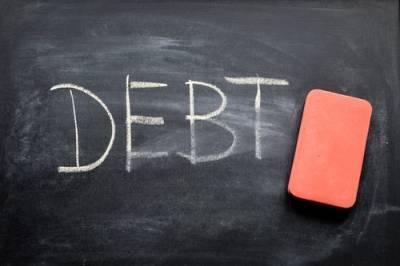What Debts Can and Cannot Be Eliminated Through Bankruptcy?
 A family may experience multiple different types of financial difficulties that affect their ability to pay their debts while also covering their regular expenses. For those who are struggling with overwhelming debts, bankruptcy can offer relief by eliminating debts and allowing a family to regain control of their finances. The elimination of debts during bankruptcy is known as a “discharge.” However, it is important to understand how different types of debts are addressed during the bankruptcy process, including which types of debts can or cannot be discharged.
A family may experience multiple different types of financial difficulties that affect their ability to pay their debts while also covering their regular expenses. For those who are struggling with overwhelming debts, bankruptcy can offer relief by eliminating debts and allowing a family to regain control of their finances. The elimination of debts during bankruptcy is known as a “discharge.” However, it is important to understand how different types of debts are addressed during the bankruptcy process, including which types of debts can or cannot be discharged.
Bankruptcy and Non-Dischargeable Debts
During bankruptcy, debts may be handled differently depending on whether they are secured or unsecured. Most types of unsecured debts, such as credit card balances, can be discharged once bankruptcy is complete, and a debtor will no longer be required to pay these amounts to creditors. Secured debts which are backed by collateral may also be discharged, but when this happens, a creditor will usually repossess the property. For example, if a person chooses to use bankruptcy to discharge the amount owed on an auto loan, the lender will most likely repossess the vehicle.
There are certain types of debts that typically cannot be discharged during bankruptcy, including:
-
Tax debts - Most of the time, bankruptcy cannot eliminate taxes owed to the IRS or a state or local government. To be dischargeable, tax debts must be at least three years old, and a person will need to meet certain requirements. Tax liens against a person’s property cannot be discharged.
-
Student loans - A person will usually be required to pay all student loans they owe. While these debts may sometimes be discharged if a person can prove that they have experienced undue hardship, meeting this standard can be difficult. Instead, a person will usually be required to make arrangements for paying off these debts based on what they can afford.
-
Child support and spousal support - Court-ordered financial support that a parent is required to provide for their child or that a person has been ordered to pay to their ex-spouse must continue being paid, and bankruptcy cannot eliminate any past-due payments.
-
Some civil lawsuit judgments - If a person is ordered to pay damages to another party because of their willful, malicious, or reckless actions, they cannot eliminate these requirements through bankruptcy. These types of judgments may address damages caused through fraud or embezzlement, as well as a personal injury or wrongful death caused by drunk driving.
-
Fines and penalties - A person cannot discharge fines imposed by the government based on violations of the law, including in cases involving criminal convictions, traffic violations, or other types of government penalties.
Contact a U.S. Bankruptcy Lawyer
If you are considering bankruptcy, you will need to understand how different types of debts will be handled. With the help of an experienced United States bankruptcy attorney, you can determine your best options for receiving debt relief, and you can take the necessary steps to regain financial stability.
Sources:
https://www.investopedia.com/ask/answers/102814/what-debt-cannot-be-discharged-when-filing-bankruptcy.asp
https://www.uscourts.gov/services-forms/bankruptcy/bankruptcy-basics/discharge-bankruptcy-bankruptcy-basics
















